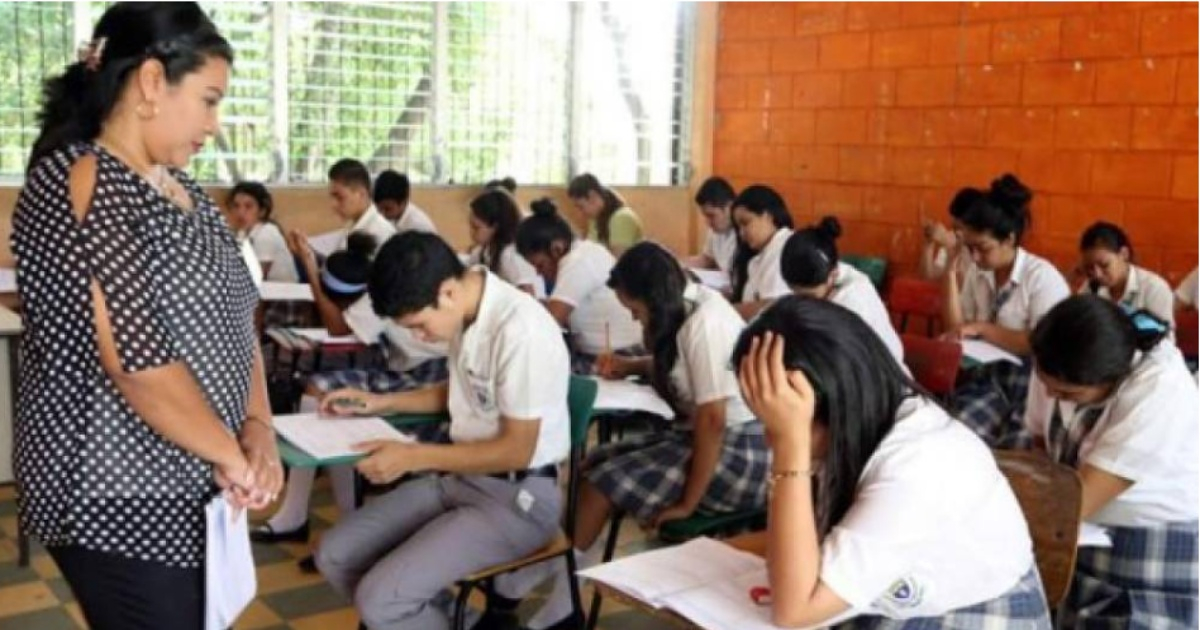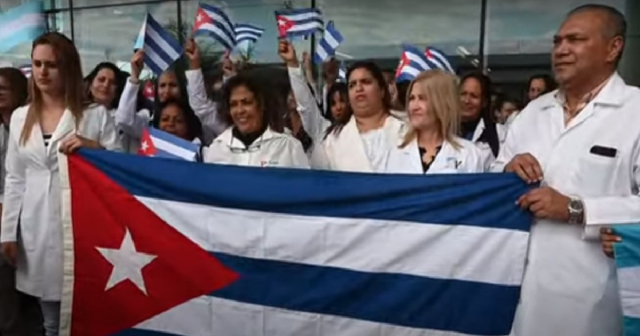
The government of Honduras will pay 10,000 lempiras per month (about $406) in salary to the 123 Cuban teachers deployed in that country to teach the Yo Sí Podemos literacy method.
In total, during the 3 years that the agreement will last, the Honduran Ministry of Education will allocate 44 million lempiras (around 1,783,505 dollars) to the teachers' salaries, while the mayors of the places where they are sent will provide accommodation,revealedthe honduran newspaperThe Herald, who had access to the agreement signed by the two governments.
“We mayors are going to help them with the room, house and some utensils. The State will give them a stipend of 10,000 lempiras to each of them,” Nelson Castellanos, president of the Association of Municipalities of Honduras (Amhon), also confirmed to that newspaper.
Ahmon must contribute 3,000 lempiras ($122) for each Cuban teacher to cover the accommodation.
The information ofThe Herald It does not specify whether this monthly stipend will go directly into the hands of the Cuban teachers or if, as happens in other missions, the island's government will be in charge of administering these salaries and taking its share from there.
The island's teachers will train more than 60,000 Honduran teachers distributed in the 18 departments in the Cuban literacy method, according to the agreement.
The revelation of these figures has revived the controversy among Honduran political forces, after months ago the Minister of Education, Daniel Sponda, assured that they would not spend on stipends for Cuban teachers.
Likewise, to some sectors it does not seem sensible that teachers who supposedly come to train remain in the country for so long, nor do they infer such an expense to the national budget.
Many also fear the ideological bias of Cuban education.
“We need the collaboration of other countries in education and health. But bringing 123 teachers seems like enough to me, I want to think that Cubans do not come to replace work spaces, but to form a platform,” commented Nelson Cálix, director of the Honduras Technical Institute (IHT).
Cálix considers it unprecedented to bring more than 120 Cuban teachers because their function will only be training.
Weeks ago, the National Party of Honduras had denounced that the Cuban teachers sent to that country function asagents of ideological interferenceand warned the population that they should be careful.
At the end of last December,at least 123 Cuban teachers arrived in Honduras to participate in the literacy campaign promoted by the leftist government of Xiomara Castro.
The Cuban educators arrived in Tegucigalpa and were received by the former president and presidential advisor, Manuel Zelaya, husband of the current Honduran president.
Last August, after the announcement of this agreement with the island's government, it broke out in Hondurasa heated controversy due to the fear that national teachers would lose their jobs with the arrival of the Cubans.
Xiomara Castro's government tried to contain the commotion caused by the controversy by arguing that Cubans would only support, but would not put, the jobs of Honduran professionals at risk.
“They are technicians who would come, and they are going to strengthen the knowledge of the colleagues who are going to facilitate (the classes),” indicated on that occasion the Vice Minister of Education, Edwin Hernández.
Hernández also assured that Cubans would implement the Yo Yes I Can literacy method, which had already been put into practice in that country during the administration of Manuel Zelaya.
He also said that the arrival of these teachers did not mean "a great expenditure to the State, compared to the benefit of eliminating illiteracy and developing the second part of 'I can' which is 'I can advance'", which -according to explained - will allow adults to complete their basic education and study a career in less time.
What do you think?
COMMENTFiled in:






